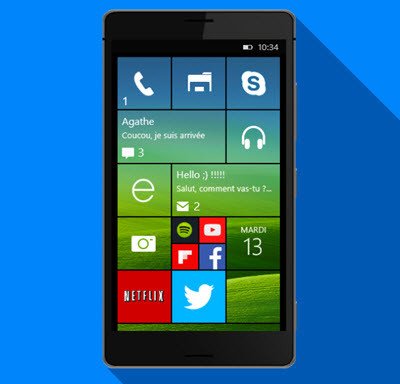Surely, it’s safe to say that Windows 10 Mobile is on its last legs since Microsoft has not released a new handset in quite a while. Not surprising because the operating system isn’t getting a lot of support from third-party developers, and to make matters worse, Microsoft has chosen to support competing operating systems over its own.

It’s never a good feeling as a Microsoft fan to see new apps released by the company, heading to Android and iOS while Windows 10 Mobile users have to wait a few weeks to get the same app – if they are lucky. To make matters worse, the software giant tends to release several apps on competing platforms, but never on its own.
For those who haven’t been keeping up, 2018 is the year Microsoft will end support for Windows 10 Mobile, and no one is fully certain where the company will go from there.
How about full Windows 10 instead of Windows 10 Mobile?
Ever since Microsoft shipped its first mobile operating system to partners when Windows Mobile was one of the most advanced operating systems, the company has longed to have the best Windows experience on a small screen.
The best way to do that and to keep development costs down is to make it possible for Windows 10 to scale correctly to smaller screens. We believe this is Microsoft’s endgame, which became more evident after the announcement of Windows 10 on ARM.
Recent patents from Microsoft have shown that the company might not be fully out of the mobile market just yet. You see, I believe the next mobile device from the software giant should not be a smartphone, but a device that works as a computer with the ability to make phone calls.
Imagine a small pocketable ARM-based device that can do all the same things as full Windows computer that is also based on ARM? That could make for a hugely successful product, but it comes with its drawbacks.
A device like this would call for another reboot, and while necessary, it’s asking fans to purchase another smartphone. Bear in mind that Microsoft did this in the past with Windows Phone 8 after revealing no Windows Phone 7.x product will be upgradeable.
At the end of the day, things would only work out for the best, but only if Microsoft executes as intended. The company has been failing in that department for some time, but with the success of Windows 10, Azure, and its artificial intelligence services, there’s a sign that things are about to change.
So sick of listening to whiny idiots talking about how Microsoft discontinued devices and came out with new ones. That is what everyone does as new tech becomes available, the old devices are obsolete. I remember the same things as several iPhones have come out. The iPhone 3 and 3g weren’t able to update to the newest operating system after awhile as it made room for the 4 and 4s. Are you morons even watching the same things as everyone else is or is it that just like the rest of the media that wants to twist things to their advantage, that all they can do is come up with stories bashing someone else? Sick of it already. Find something peaceful and pleasant to report or say or don’t say anything at all. Very simple. How about Android Wear? I don’t hear anyone bashing them or how long it took to get the 2.0 update to work on the 1st and 2nd gen devices. Get a life already moron or don’t be subjective when writing an article.